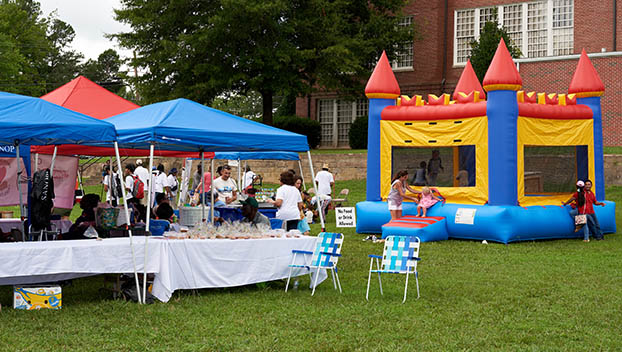Lunenburg Historical Society announces essay winners
Published 1:17 pm Thursday, April 30, 2020
|
Getting your Trinity Audio player ready...
|
The Lunenburg County Historical Society (LCHS) has chosen the winners of its annual 2020 Essay Contest.
Topic for the essays was, “A Legacy for Today’s Lunenburg.”
The contest was open to eighth-grade students residing in Lunenburg County who attended public or private schools, as well as home-schooled students. The students were to draw upon their reading of The Lunenburg Legacy, a book of county history by Gay W. Neale.
Trending
Aston Drames, of the portion of Lunenburg County near Green Bay, won first place for his essay focused on the influence of tobacco farming in Lunenburg’s history and economy.
“When I researched the county’s history in the book, The Lunenburg Legacy, I found that the rural county I now live in has a massive amount of history behind it, a lot more than I could have ever imagined… many jobs were available to the tobacco farming here … the soil … was so great for tobacco to be grown in high quantities and qualities.” Aston summed up his essay, “I feel as though everyone should go back and research the history of their family and their county, as they may have a new understanding of how the place that they live came to be. Everyone has a different past, so every family’s history is special in one way or another.”
Ellie Spencer, second-place winner, resides in the Kenbridge area. She was interested in the Legacy book’s discussions of sports and entertainment. She knew Lunenburgers like to hunt as a form of outdoor recreation, but learned that in the county’s history, hunting also was an important source of food and other products.
“People started to hunt rabbits because there were a lot in Lunenburg. They also could make different things from rabbits such a stews, pies, fried rabbit and rabbit mincemeat. Bears give us meat and fur, which is a good thing because some people didn’t have a lot of money for heat during the winters, and bear fur is free and very warm.”
For today’s student, it is a revelation that years ago, food could come from the woods around us and someone’s warm winter coat might have been a bear’s fur coat before Dad or Grandpa shot that bear.
Ellie advises, “I got to talk to my family about how we got here … interesting facts and creating a bond with your family.”
The third place essay was written by Nathan Farmer of the Keysville area of Lunenburg County. His reading of The Lunenburg Legacy left him with a rich understanding of how the citizens of the county contributed to the Confederate forces during the Civil War, 1861-1865. Nathan was impressed by the volunteer soldiers like the Flat Rock Riflemen and the daring of William Passmore of Lunenburg, who was picked by General Robert E. Lee to be a spy for the Confederate Army.
“Passmore dressed up as an old man and sold produce to Union soldiers. He eventually gained the trust of the soldiers and reported [information he overheard] to General Lee.”
And the county residents also sacrificed for the war effort by providing food from their crops, and mules or horses they certainly needed on the farm. Nathan concludes, “I challenge the readers to research about” the history of the place they live in.
L. Makenzi Burch of Victoria liked the simple entertainments of early county life that were described in The Lunenburg Legacy. She described the box lunch auctions that were like a mixer for young ladies and unmarried men. Shadow parties were a form of charades, and amateur plays featuring local citizens were very popular. She suggests people try some of these old-time things.
As Makenzie expressed in her essay, “Try something new because this generation of kids has so much technology they rarely make time to experience these things … just to see what it was like. Ask grandparents or older family members if they remember doing these things as a child.”
Winners received a certificate and a monetary award.


